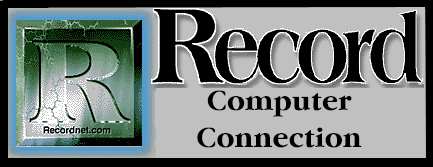

Chances are, you know which programs you borrowed from a friend or pirated from work, but what about the programs that came pre-installed on your system? The average computer consumer generally trusts that their computer vendor is reputable and will deliver the agreed upon goods. When the system comes with the requisite software loaded, questions regarding licensing or documentation simply never arise...until problems surface later.
Software piracy through legitimate distribution channels is on the rise and is currently being targeted by the Business Software Alliance. BSA is a consortium which represents leading software companies, including Microsoft, Lotus, Symantec, WordPerfect Applications Group, Novell and Autodesk. Last week at COMDEX, the BSA launched its Approved Software Dealer program, aimed at curbing the distribution of pirated software through dealers and resellers. BSA also plans a campaign to educate computer users on how to recognize counterfeit or illegally copied software programs.
Software theft cost the computer industry more that $15.2 billion worldwide last year and $2.8 billion in the U.S. alone. But the ultimate victim is always the consumer. In the past two months, I've encountered two situations where legitimate businesses, in good faith, paid top dollar for new computer systems, decked with fancy software...all of which was pirated. The owners were shocked to learn they weren't entitled to technical support or upgrades for these software products. They didn't even have disks or documentation for their DOS or Windows operating systems.
"But I paid for this stuff, didn't I?", wailed the frantic client, desperate to re-install his crashed Windows system. Yes, you probably did, but an unscrupulous vendor took advantage of your computer ignorance in an effort to keep prices low and profits high. By the time the fraud was realized one vendor was long gone. In the other case, the vendor claimed he never sold the customer all the pre-installed software...it was merely for "evaluation".
In both the above-mentioned cases, the client had to purchase the original software in order to acquire either the basic operating system or the needed upgrade products. In essence, the consumer paid twice. There are many trustworthy, reliable and integral computer vendors around. You, as a consumer, just need to know what questions to ask to ensure you are getting what you paid for.
Is the original media included for all the installed software, i.e. CD-ROM or disks? (This includes DOS and Windows.) If not, what is the procedure to back up the original software? Are the original instruction manuals included? Where are the registration and licensing documents? Once you locate these documents, send in your registration and put the licensing agreement in a safe place. You will need these materials to be entitled to later upgrades.
Manufacturers are becoming more stringent in their requirements for upgrade entitlement. This week I purchased an upgrade at a very competitive price, but not before I produced a copy of my sales receipt, a copy of the first page of my manual AND the serial numbers from my diskettes! The upgrade was shipped for $29. Without original documentation, the full price of the new product would be $129.
Beginning in 1996, look for BSA Approved Software Dealers when purchasing your software or computer systems. Legitimate dealers and resellers will be encouraged to participate in this program, pledging only to sell legal software. Lists of participants will be distributed to computer users through a variety of advertisements and mailings.
If you knowingly participate in complicity by accepting pirated software for short-term gain, then don't whine later. Do you know where your original Windows disks are? Caveat Emptor!
BSA operates 35 anti-piracy hot-lines around the
globe for callers seeking information about copyright matters or to report suspected incidents of
unauthorized copying of software. 1-800-688BSA1
Feedback? E-Mail cschuler@ceeprompt.com